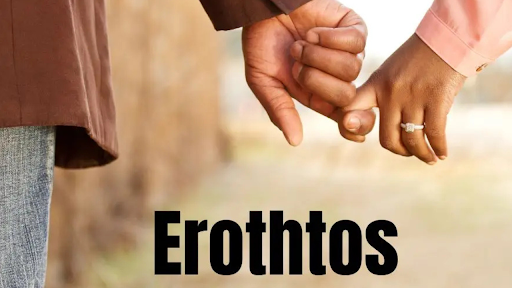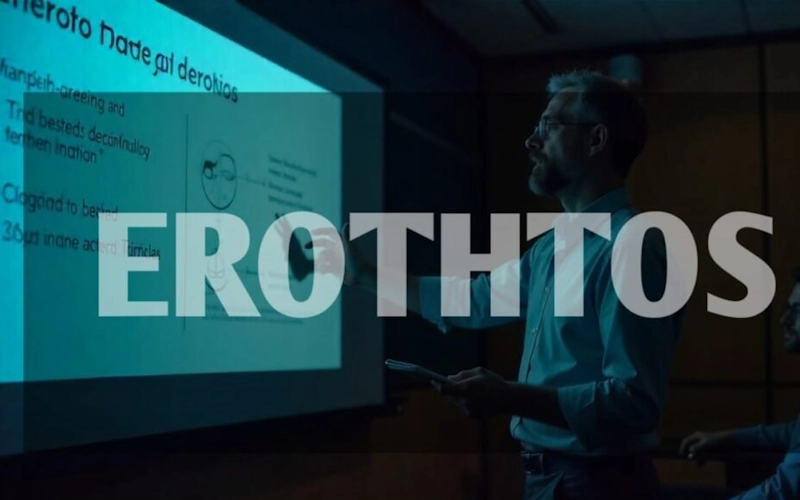Introduction
Erothtos, an ancient Greek concept often associated with passionate love and desire, has been a significant subject in both philosophy and psychology. Throughout history, thinkers from Plato to Freud have explored its meaning, implications, and influence on human relationships, creativity, and personal growth. This article delves deep into the philosophical and psychological dimensions of Erothtos, revealing its role in shaping human emotions, motivations, and the pursuit of fulfillment.
The Origin and Meaning of Erothtos
The term Erothtos originates from Greek mythology, where it represents the god of love and desire, often depicted as a mischievous figure who influences emotions and relationships. In early Greek literature, particularly in Hesiod’s Theogony, Perottos is described as one of the primordial forces that helped shape the universe.
Later, in philosophical traditions, particularly in Plato’s dialogues, Ero-thtos takes on a deeper meaning beyond physical attraction. It is seen as a driving force that leads individuals toward higher understanding, wisdom, and the appreciation of beauty in its purest forms. This transition from carnal desire to intellectual and spiritual longing reflects the multifaceted nature of Erothtos in human experience.
Erothtos in Ancient Philosophy
Plato’s Concept of Erothtos
Plato’s most influential discussion on Erothtos appears in The Symposium, a philosophical text that examines different perspectives on love. In this dialogue, Socrates recounts the teachings of Diotima, a philosopher who describes Ero-thtos as a ladder of ascent leading from physical attraction to a love for eternal and universal beauty.
According to Plato, Ero-thtos begins with an appreciation of individual beauty, then progresses to a love for all beautiful forms, ultimately culminating in the love of pure knowledge and wisdom. This idea suggests that Erothtos is not merely a force of sensual pleasure but a transformative power that propels individuals toward enlightenment and self-improvement.
Aristotle’s Perspective
Unlike Plato, Aristotle views Erothtos in a more practical light. In his work Nicomachean Ethics, he explores the nature of friendship and love, emphasizing that true love arises from virtue and shared values rather than mere physical attraction. He introduces the concept of philia (deep friendship) as a counterpart to Erothtos, highlighting the importance of mutual respect and long-term companionship in human relationships.
Erothtos in Psychology
Freud’s Psychoanalytic Theory
Sigmund Freud, the father of psychoanalysis, redefined Ero-thtos in psychological terms. He identified it as one of the two fundamental drives governing human behavior, the other being Thanatos (the death drive). Freud’s concept of Ero-thtos encompasses not only romantic and sexual attraction but also the broader life instinct that drives individuals toward survival, creativity, and procreation.
Freud believed that Ero-thtos is responsible for building relationships, forming social bonds, and fostering artistic and intellectual pursuits. However, when repressed or misdirected, it can manifest in neuroses or unhealthy attachments.
Carl Jung’s View on Erothtos
Carl Jung, another influential psychologist, expanded upon Freud’s ideas and introduced the concept of the Anima and animus, which represent the feminine and masculine aspects within the psyche. Jung saw Ero-thtos as a force that connects individuals to their unconscious desires and facilitates personal growth through relationships and self-discovery.
For Jung, Ero-thtos was not solely about physical attraction but also about the integration of different aspects of the self. He believed that understanding and embracing Ero-thtos could lead to greater emotional and spiritual wholeness.
Erothtos in Modern Thought and Society
Romantic Love and Personal Fulfillment
In contemporary society, Erothtos is often associated with romantic love and passion. Popular culture, literature, and media frequently portray love as an all-consuming force that gives life meaning. However, the modern understanding of Ero-thtos also includes emotional intimacy, deep connections, and long-term commitment.
Psychologists today emphasize the importance of balance in relationships, where eros (passion) is complemented by storge (affection), pragma (practical love), and agape (selfless love). Research in relationship psychology suggests that healthy, fulfilling relationships are built on a combination of passion, emotional support, and shared goals.
Erothtos and Creativity
Beyond relationships, Ero-thtos plays a crucial role in creativity and artistic expression. Many artists, writers, and musicians draw inspiration from their experiences of love and longing, channeling these emotions into their work. The creative process itself is often described as an act of passion, mirroring the transformative journey of Ero-thtos from desire to expression.
The Challenges of Erothtos in the Digital Age
In today’s digital era, the nature of Erothtos is changing due to the influence of technology and social media. The rise of dating apps and online communication has transformed how people experience attraction and relationships. While these tools offer new opportunities for connection, they also present challenges such as superficiality, fleeting interactions, and the commodification of love.
Additionally, the overconsumption of digital content and instant gratification can diminish the depth and authenticity of Erothtos, making it essential for individuals to cultivate meaningful connections beyond the digital realm.
The Transformative Power of Erothtos
Ero-thtos as a Path to Self-Discovery
As both ancient philosophers and modern psychologists suggest, Ero-thtos is not just about physical attraction but a powerful force that drives individuals toward self-discovery and personal growth. Whether through relationships, intellectual pursuits, or artistic creation, embracing Ero-thtos can lead to a richer and more meaningful life.
The Need for Balance
While Ero-thtos is a source of passion and inspiration, it must be balanced with rational thought and emotional stability. An unchecked desire can lead to obsession or destructive behavior, whereas a healthy approach to Erothtos can enhance personal well-being and fulfillment.
Conclusion
Erothtos, in its many forms, remains a central force in human life, influencing relationships, creativity, and personal evolution. From Plato’s vision of Eros as a path to higher wisdom to Freud’s interpretation of it as a fundamental life drive, the concept continues to shape philosophical and psychological discourse. Understanding and embracing Ero-thtos can help individuals cultivate deeper relationships, unlock creative potential, and ultimately achieve greater self-awareness and fulfillment.

